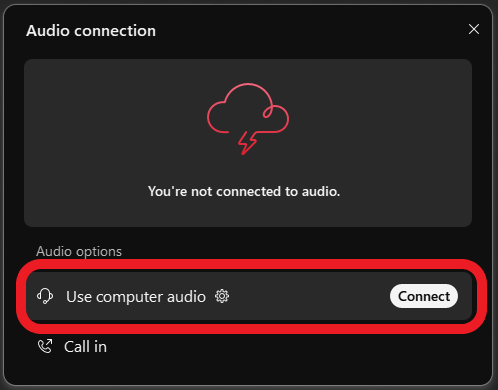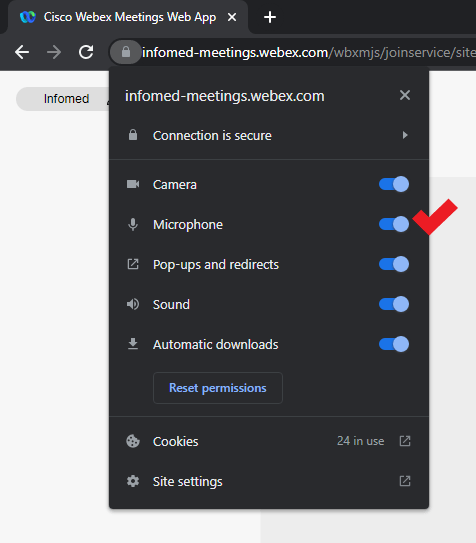This event took place recently. You can now:
ECG Interpretation:
What the Psychiatrist Needs to Know
Available to stream on-demand now
- A practical course for the Consultant, SASG and Senior STs working in adult general Psychiatry
- Format: Interactive lectures followed with case scenarios, discussion and Q&A
- CPD: 5 CPD credits with certificate of attendance issued

45 minutes
Recording and interpreting the ECG

Dr Dan Bromage
Consultant Cardiologist, King's College Hospital NHS Foundation Trust
- Anatomy and the Electrophysiology of the heart
- The ECG machine – how it works and why
- Has the ECG been correctly taken? How do we know?
- Understanding automatic reporting – how reliable is it?
- The normal ECG, including normal variants
- Measuring the QT interval, including worked examples
- A systematic approach to ECG interpretation
100 minutes
Interactive ECGs discussion (1)

Dr Matt Sadler
Cardiology Research Fellow, Kings College London
45 minutes
ECG – Normal, Abnormal, High Risk - when to refer?

Dr Matt Sadler
Cardiology Research Fellow, Kings College London
- Identifying the high risk patient
- Prolonged QT interval
- ECG and medical conditions such as: Arrhythmias, Ischemia, Chest pain and palpitations, Anorexia, R bundle block
- Congenital abnormalities
- Clinical symptoms to look for and key clinical questions to ask the patient
- What not to miss and when to refer to the specialist
100 minutes
Interactive ECGs discussion (2)

Dr Dan Bromage
Consultant Cardiologist, King's College Hospital NHS Foundation Trust
30 minutes
ECG’s and Psychiatric Medications

Dr Dan Bromage
Consultant Cardiologist, King's College Hospital NHS Foundation Trust
- What to check for before you medicate
- The abnormal ECG – what are the expected outcomes of changing the patient’s medication?
- If the medication is continued, is there a point at which the ECG will say “you need to change medication now!”?
- Medications, including: Stimulants, Psychotropic, Mood stabilisers, antidepressants and atypical medications
About this course
This webinar comprises online interactive lectures and interactive discussions led by Cardiologists who are very familiar with the questions asked by the Psychiatrists regarding cardiology and in particular ECGs.
This webinar provides an update on how to read ECGs –the basics and beyond – with a focus on ECG abnormalities that are highly relevant to the practice of the General Psychiatrist. During the day, delegates will have the opportunity to undertake interactive ECG interpretation, putting into practice the techniques learned in the lectures, with live tutors’ feedback.
The aim
To provide all Adult/General Psychiatrists with a practical and comprehensive webinar covering a wide range of ECGs that will assist them in developing a skilled and systematic approach to interpreting an ECG, identifying the red flags and to decide when to refer further to a specialist.
Sessions with lectures and cases will cover
- How to interpret an ECG and NOT how to take an ECG
- Abnormalities that the General Psychiatrist will normally see and what not to miss
- Abnormal ECGs – clinical symptoms to look for, and key clinical questions to ask the patient
- ECG abnormalities related to psychiatric medication and medication management
- What ECG is contraindication to psychotropic medication?
- By the end of the course, delegates will develop a skilled and systematic approach to interpreting an ECG, identifying the red flags and to decide when to refer further to a specialist
- Places at this webinar are strictly limited so as to maximise webinar interaction
Interactive ECG Discussion
- All attendees look at the ECG cases is depth guided by the tutor.
- The tutor goes through the first cases highlighting good practice.
Cases may include: Prolonged QT Interval; Sinus tachycardia; Atrial fibrillation; ST elevation and myocardial infarction; AV block; and Ectopics
Course faculty members

Dr Dan Bromage
Dr Bromage is a Consultant Cardiologist at King's College Hospital NHS Foundation Trust and Honorary Senior Lecturer at King's College London. His clinical interests include heart failure and inflammatory cardiomyopathies. His research focuses on manipulating inflammation after myocardial infarction to reduce progression to heart failure.

Dr Matt Sadler
Dr Sadler is a cardiology Higher Specialist trainee and current Research Fellow at Kings College London. Clinical interest includes inflammatory heart disease, arrythmia and cardiac devices
Feedback from this course in 2024
- Excellent session, great coverage
- Excellent and delivered to the appropriate level and very useful.
- Lecturer gave really clear explanations and answered all questions thoroughly
- The presenters were both first class. The level of interactivity was good. The level was just right. It was much more interesting than I anticipated!
- Very good coverage of all the topics we psychiatrists need.
- Exactly what I needed to improve my practice.
- Very useful sessions and I have gained knowledge and also confidence in interpretation of ECGs.
- Very good lecturers providing a great systematic approach to interpretation, also the interaction from other delegates was very helpful.
- The presenters are very good. They kept us engaged throughout the sessions. The content was tailored. And the tech support was very good.
- IT worked well other than initial glitch with updated version of Webex but all these problems were solved very quickly by Informed staff, great support!.
- I thought the use of Slido, alongside the ECGs, was a great use of IT. The content was focused at the right level. An equal mix of theory and practice.
- Clear presentation, focus on relevant topics, knowledgeable speakers, interactive sessions and excellent Informed support throughout the day
- All very good, lots of ECG practice; QTC interval calculation; good range of coverage from recording to ECG to more specific psychiatric related topics
- I feel more confident with QTc; I got shown lots of ECGs, very timely, as now we do physical health checks (not GPs); and take prescribing decisions
- Excellent relevant content of delivery, great presentation and teaching skills, opportunities for interaction/to ask questions
- Lecturers gave clear explanations, we had lots of practice in reading ECG with so could easily see where had missed abnormalities etc
- I am an old age psychiatrist – this course has been very helpful and I am going to utilise it in my work. We are aiming for MSNAP so I will also pass on some of the info to my team.
- This course worked really well with Webex and slido, I would highly recommend to colleagues
- Coverage from ECG basics to clinical implications; interactive ECG interpretation sessions; informative answers to questions from participants.
- Delivered at my level, good instruction given, appropriately timed, good use of slido, good on the basics for reading ECG.
- I thought this course was spot on, and wouldn’t change anything.
- The knowledge of the speakers, the anonymous poll and the last lecture.
- This course is good, a simple format, answering questions, practice ECGs including normal; this is the second time I am attend, so definitely find it very helpful.
- I will certainly apply my knowledge to practice and also plan to share my learning with peers/colleagues and students on placement.
Feedback from this course in 2023
- the straight answers
- Targeted teaching (direct relevance to psych), (2) Recap/refresher on the basics, (3) Excellent speakers.
- focussed on practice, useful, concise
- Interactive ECG sessions, speakers being very responsive to questions
- Relevant, pitched at the right level, clear
- Practical, good time management, interactive
- Pitch if the content with good early refresher sessions on basic ECG interpretation; interactive sessions; Slido was especially useful tool
- these courses are outstanding .Thank you.
- Informative, useful, great to do it remotely in the comfort of my own home.
- Engaging speakers, interactive cases, well timed.
- clear teaching on ecg readings with lots of examples. The last talk which tied in the most important things for my practice
- Pitched right; informative; interactive.
- The hands on experience All of the content & recourses The fact that i can go back and watch it
- Understandable, covered wide topics, great speakers
- On-line, presenters, content
- The basic recap at the beginning and then the clarity of how we were looking at what we see when things go wrong in different places
- Well organized, interesting content, good ECG examples
- Covered basics to good depth. Set at right level/complexity for me. Covered most likely/common scenarios but also what the most concerning signs would be.
- Helpful for day to day clinical practice
- Feel more up to date and confident.
- Better ECG interpretation
- Having a clearer idea when to refer and what would be normal variation,
- Will improve patient care
- I regularly have to review ECGs and this has given me more confidence
- More confidence looking at ECGs; knowing when to refer to cardiology colleagues; improved psychotropic prescribing practice
- i will be able to guide and teach my junior doctors.
- I will be more confident with reading ECGs. I will request echos on my Clozapine patients who are persistently tachycardic.
- More confidence in ECG interpretation and skills I will put into practice.
- more confidence reading and responding to ECG’s which are done annually for all my patients
- Already thinking of adapting some of my practice.
- I feel more confident about knowing when to refer patients to cardiology; more confident in managing clozapine-induced tachycardia.
- I feel more confident at interpreting ECGS
- I am feeling a lot more confident reading ECGs
- It will be helpful to have a good logical approach to making my own interpretations
- Improving my clinical skill in ECG interpretation
When will I receive my course login?
We will contact you by email one week before the course takes place with all the necessary links and joining information.
We will re-send the links the day before the course.
If you have not received an email from us please contact us at webinars@infomedltd.co.uk and we will respond ASAP.
Will I need any special software to partake?
NO. Infomed shall provide you, upon registration a link to stream the course within your web browser, or you can download a small application to run it as a separate window on your computer. If you would prefer a mobile device, we shall also include a link download an app from the Play Store/App Store.
Can I interact with the speakers?
YES! It is very much encouraged. There will be Q&A sessions chaired by Infomed. You can type your questions in the ‘chat’ facility and they will be put to the speakers.
How I do access my catch-up & CPD certificate?
You can find your catch-up in your account page.
At the end of the catch-up page you will find a link to the feedback form, which will generate your CPD certificate when you submit your feedback.
If the catch-up is not visible in your account, please contact us and we will amend your account ASAP.
How to connect to a live online course
Using the short videos below, we shall guide you through the process of joining a meeting using Webex.
If joining from your own computer
If you are connecting from your own device then it is likely that you will be able to join via the Webex application.
If joining from a trust/institution computer
However, if you are using a computer that is owned and restricted by your trust, then you may find it easier to join via your web browser. Please see the second video for guidance on this process.
Joining Webex using the application on your PC or Mac
Joining Webex using your web browser
I've connected to a course but can't hear anything
When you connect to a course you should see some introductory slides and hear music.
If you cannot hear any music please check you are connected to the audio.
At the bottom of the webex meeting you may see a button that says “Connect to audio”.
Click this and then select “Use computer for audio” in the pop-up box.
If you have connected by a browser you may need to give your browser access to your microphone in order to connect to the audio.
Click the padlock in the top left of your browser and make sure microphone access is allowed
If this does not resolve your issue please email us or call us on 0204 520 5081
What do I need to join a course?
To join an Infomed Online course you simply need an internet connection and a browser (Google Chrome, Mozilla Firefox, Apple Safari).
You can also connect from a mobile device: Download the Webex Meetings app from your App Store.
To join a course with a smooth experience, your internet connection must be stable, not connected to a VPN and at least 20Mbps download.
Below you can use the tool to run an internet speed test.
You must test from:
- — the location that you intend the see the course from;
- — withing the location, if using Wi-Fi, the room or department area that you intend to view the course from to ensure a good signal
- — if connecting from home, a computer that is not connected to a workplace VPN
Speed test
Internet Speed Test
Please test your connection speed at www.fast.com
To join a course with a smooth experience, your internet connection must be stable, not connected to a VPN and at least 20Mbps download.
Catch-up version
- 120 days of access with unlimited playback
£175
plus...
- Certificate of attendance with 5 CPD hours
- Send your questions to the faculty
- Playback from any device
